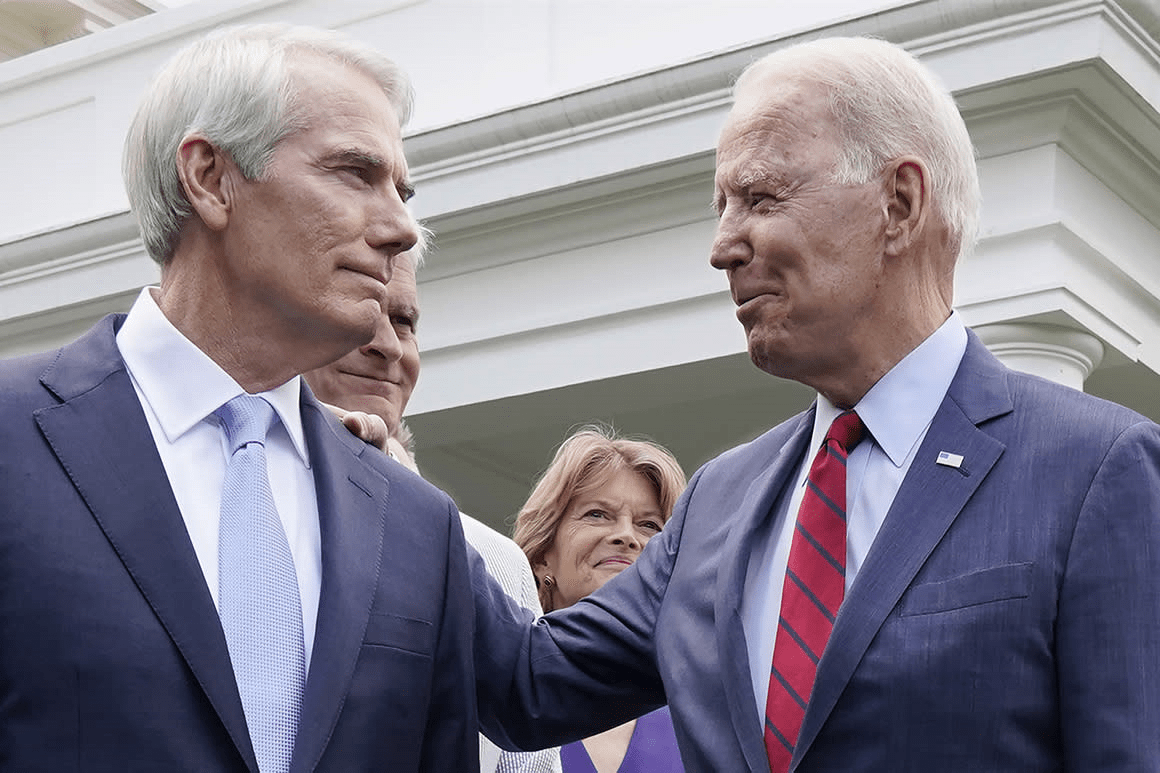
Why Skills-First Leadership Is Replacing the Ivy League Playbook in the C-Suite
The old prestige pyramid—where Ivy League degrees and blue-chip consulting backgrounds paved the way to the CEO seat—is cracking.

June 29, 2021: -On Sunday, U.S. Senator Rob Portman, R-Ohio, said that the bipartisan infrastructure deal could move forward after President Joe Biden’s clarification that he’ll sign the bill even if it comes without a reconciliation package.
Last week, the president said that he’d refuse to sign the deal unless the two bills came in tandem, a remark that surprised Republican lawmakers.
On Saturday, after backlash from Republicans, which include Senate Minority Leader Mitch McConnell, Biden released a lengthy statement and reiterating full support for the deal.
“We were all blindsided by the comments the previous day, which were that these two bills were connected,” Portman said in an interview with ABC’s “This Week.”
“I’m glad they’ve been de-linked, and we can move forward with a bipartisan bill that’s broadly popular not just among members of Congress, but the American people,” Portman said. There’d been “good faith” from both parties throughout negotiations, he added.
The second bill, known as the American Families Plan, would have spent on Democrat-backed issues such as climate change, child care, health care, and education. It would be passed through reconciliation, which requires Republican votes to pass through Congress.
Administration officials have called the issues in the reconciliation package “human infrastructure,” while the bipartisan infrastructure bill primarily focuses on improving roads, bridges, and broadband.
On Sunday, Sen. Bill Cassidy, R-La., said on NBC that McConnell will favor the infrastructure deal but that “he didn’t like the president throwing a wrench in there.”
Biden said his remarks “created the impression that I was issuing a veto threat on the very plan I had just agreed to, which was certainly not my intent.”
Also, the president requested that Senate Majority Leader Chuck Schumer, D-N.Y., schedule the bipartisan deal and reconciliation bill for Senate action and anticipate both bills to go to the House.
Sen. Mitt Romney, R-Utah, a key negotiator of the deal, said he is sure that Republicans will support the infrastructure bill to be passed, and he believes that the president will sign it.
“A lot of my colleagues were very concerned about what the president was saying, but I think the waters have been calmed by what he said on Saturday,” Romney said in an interview on CNN’s “State of the Union.”

The old prestige pyramid—where Ivy League degrees and blue-chip consulting backgrounds paved the way to the CEO seat—is cracking.

Loud leaders once ruled the boardroom. Charisma was currency. Big talk drove big valuations.

But the CEOs who make history in downturns aren’t the ones with the deepest cuts

Companies invest millions in leadership development, yet many of their best executives leave within a few years. Why?

The most successful business leaders don’t just identify gaps in the market; they anticipate future needs before anyone else.

With technological advancements, shifting consumer expectations, and global interconnectedness, the role of business leaders

At seventeen, Professor Richard Rose stepped into a world few adults dare to navigate: the world of children fractured by trauma. He wasn’t a clinician then, nor a scholar. He was simply a young man with a heart tuned to the quiet ache of others.

Following a distinguished Law Enforcement career Joe McGee founded The Securitatem Group to provide contemporary global operational specialist security and specialist security training products and services for private clients, corporate organisations, and Government bodies. They deliver a wide range of services, including complete end-to-end protection packages, close protection, residential security, protection drivers, and online and physical installations. They provide covert and overt investigations and specialist surveillance services with a Broad range of weapons and tactical-based training, including conflict management, risk and threat management, tactical training, tactical medicine, and command and control training.

Jay Wright, CEO and Co-Owner of Virgin Wines infectious energy, enthusiasm, passion and drive has been instrumental in creating an environment that encourages talent to thrive and a culture that puts the customer at the very heart of every decision-making process.

Fabio de Concilio is the visionary CEO & Chairman of the Board at Farmacosmo, a leading organization dedicated to mental health and community support services. With a deep commitment to identifying and meeting customer needs, Fabio ensures that high standards are maintained across the board.

Leave us a message
Subscribe
Fill the form our team will contact you
Advertise with us
Fill the form our team will contact you